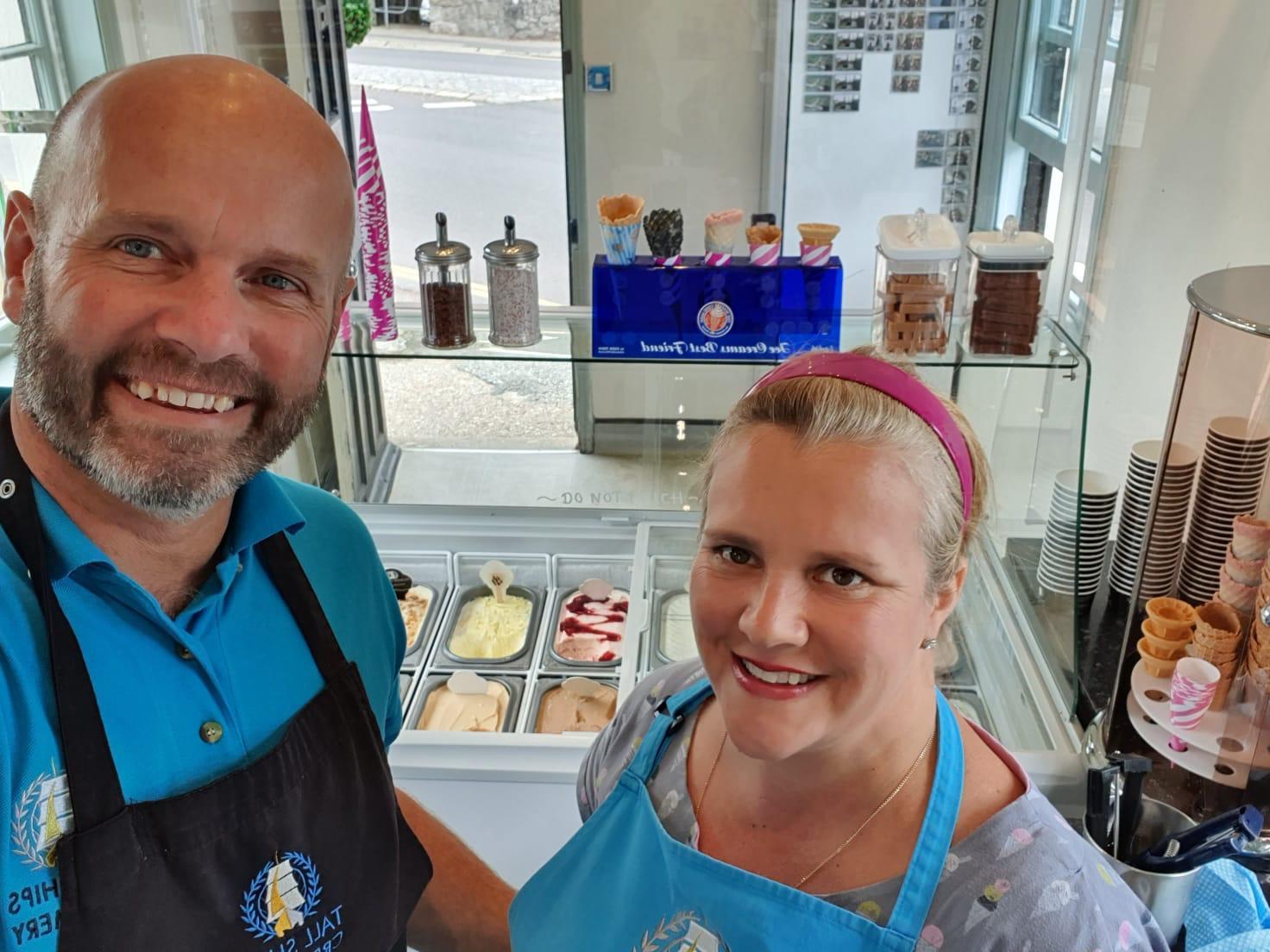‘It’s carnage down there’: UK tourists flock to southwest coast but locals refuse to welcome them with open arms
There are some in the southwest who would prefer the region to have stayed shut
As a large population of the country decides against the risk of holidaying abroad, the southwest of England is welcoming more guests than ever – but faces the risks associated with the virus.
Based on stats alone it would appear Devon and Cornwall have gotten off lightly when it comes to coronavirus.
The South Hams was one of the first places in the UK to report a case of Covid-19, but since then there have been just over 2,000 more cases in Devon, with about 900 having been reported in Cornwall since early March.
While other picturesque parts of the country such as Cumbria suffered during lockdown with day-trippers blamed for spreading the virus, the westcountry – stung by those early cases – shut up shop quickly with a police force determined to enforce the letter of the law and angry, social-media savvy locals armed with smartphones and a passion for passive aggression ready to expose any second-home owners flouting the rules.
There are many in the southwest who would prefer it to have stayed that way, but this is a region which relies heavily on its tourism industry.
“It had got to the point where we had to open again,” says Victoria Norris, 46, who runs Tall Ships Creamery ice cream shop in Charlestown on the south Cornwall coast.
“Only time will tell if we have made the right decision. We have had a lot of holidaymakers down here and by the beginning of September we will know how lucky we have been.”
Victoria was so concerned by the spread of the virus that she shut down her business before the government made closure compulsory. She also refused to reopen until June – after her engineer fiance Scott Anstey had completely revamped her two small shops in the village to ensure they were completely Covid-safe.
She only allows one household into the shop at a time and employs a strict two-metre social distancing rule at all times.
“When we were closed there was a lot of pressure from people asking when we were going to open again, but I wasn’t prepared to risk my staff, their families or myself,” Victoria says.
“I won’t change what I have done. If we ever get back to a point of everything being safe I will keep my shops as they are.
“When people come down on holiday they do forget about the virus and social distancing just goes out of the window. We have a two-metre rule in the shop and some people love it while others think it is ridiculous… but we don’t want to get ill.
“I went kayaking the other day and I heard someone with a northern accent on the beach. They were doing no social distancing whatsoever and it just made me want to jump in the sea and get away as quickly as possible.
“I won’t go to the beach. I keep myself to myself. There are just too many people at the moment.”

The last few months have taken their toll regardless of the virus stats. Any further delay in easing lockdown would have even more businesses facing closure than have already done so.
Now hotels, B&Bs, campsites, theme parks, ice cream vendors are all open again and have rarely been busier, boosted by a nation of holidaymakers desperate for a sense of freedom but fearful that overseas travel could mean contracting the virus, a two-week spell in quarantine on their return, or both.
And therein lies the catch-22 for many in Devon and Cornwall – they have to reopen and welcome visitors from other parts of the UK where the virus is more prevalent in order for survive economically, but what will the cost be to their own health?
Croyde and Georgeham in North Devon is home to one of the country’s most magnificent beaches and anything up to 10,000 holidaymakers in peak season – but a mere 700 or so hardy souls out of it.
“It’s probably busier now than in previous years, but that’s because people are staying in the UK rather than going abroad,” says parish council chairman John Symonds, who has counted himself among those 700 his whole life.
“Holidaymakers aren’t adhering to social distancing, it’s carnage down there. One campsite has a rule of 10 metres between each tent, but another site has got 1,200 people packed into a small field. What can you do?
“People and businesses have had it hard out there and now they are trying to catch up. You cannot blame them for taking the money now it’s on offer. I don’t think it will cause a second spike, but it’s obvious something will happen here.”
Sam Scott, a resident of neighbouring Ilfracombe for 15 years, agrees.
“At the start of lockdown I would have been outraged at holidaymakers coming down here, but now I’m more accepting of it,” he says.
“Yes, I am concerned about holidaymakers spreading the virus, but I would be more concerned about holiday businesses around North Devon going under. It’s a really fine line between protecting vulnerable people in the community and in Devon hospitals, and looking after local businesses.
“If people weren’t on holiday I like to think they would be a bit more sensible when it comes to social distancing, but I can understand them not doing it – they are on holiday and want to relax.”

Sunseekers have certainly seen the recent heatwave as an opportunity to make the most of the southwest.
From Lulworth Cove to Bubleigh Salterton, from St Ives to Bude, Woolacombe to Minehead and every beach in between, accents from all over the country can be heard – as commonplace as the pasty shops.
The corner of the UK thronging with people is nothing new in summer, but when you add in the need for social distancing the narrow lanes and 50cm wide cobbled pavements only heighten the sense of claustrophobia.
In Totnes cars have been banned completely from the narrow main road through the town on Saturday mornings in order to allow pedestrian shoppers to socially distance – it’s simply impossible to do so otherwise.
Other resorts such as Perranporth in North Cornwall have put cones down in the roads of the busiest streets and employed marshalls in an attempt to widen the pavements.
“It’s better than nothing,” said one local resident. “You speak to tourists who say they have come down here to get away from the virus… but I’m thinking ‘you could be bringing it down to us’.
“At this time of year it’s usually busy, but this year it’s just gone completely mental. We will be lucky to not get a second spike.”
Join our commenting forum
Join thought-provoking conversations, follow other Independent readers and see their replies
Comments
Bookmark popover
Removed from bookmarks